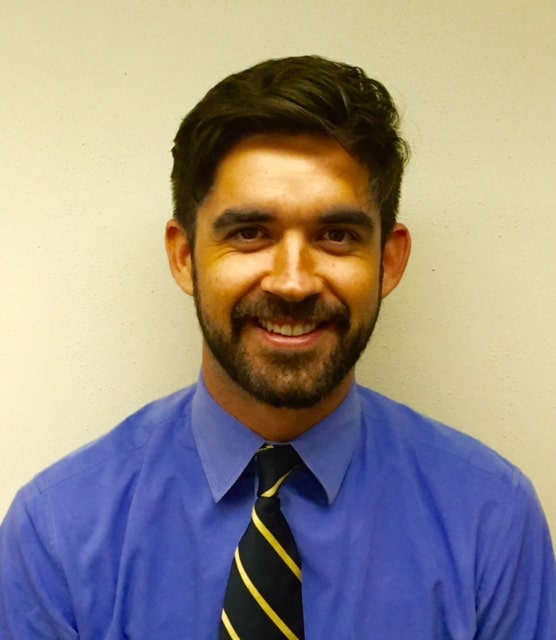This is the second edition of a quarterly column from Dr. Thompson – a newly minted doctor of audiology. The first edition of the Young and the RIC-less can be found here. In this multi-part essay, Garrett tackles many of the hotly contested issues related to over-the-counter hearing products.
By Garrett Thompson, AuD
Many a concerned post, tweet, text, and conversation has been had regarding the over-the-counter (OTC) hearing aid bill that may be passed this Congress. After considering the evidence, I am happy to report that the sky is not falling. I’ll explain later, but for now believe me when I say OTCs will NOT have a huge disruptive impact on our profession, and they may even bring more attention to audiology than has ever been seen in the past. Not all of it will be good attention, but as the adage goes: any publicity is good publicity (if you shape it the way you want).
There will be great change in our future, and with that some discomfort, but it’s nothing we cannot overcome. Perseverance is shown to be more predictive of success than almost any other attribute, including intelligence; in these anxious times, if we show some perseverance and develop a strategic plan, I believe audiology will not only survive the OTC wave, we will in fact thrive.
Audiology and OTC Hearing Aids
This is a cute baby dressed-up like a turtle. You’re welcome.

This is an actual turtle. This is also a metaphor. This turtle has sensed a threat and has turtled in his turtle shell. His evolutionary fight-or-flight response kicked in and he picked flight (an internal flight, but flight nonetheless).

When it comes to the OTC hearing aid discussion, most audiologists (justifiably) sense a threat approaching. As best as I can tell, most audiologists’ reaction to this threat expresses itself as two primary fears:
Fear #1 Our patients will be hurt by OTC hearing aids.
Fear #2 OTCs will replace audiologists! Our days are numbered! I might even change professions! I wish I became a Physician’s Assistant!
Don’t get me wrong, both fears are rational. But if we unpack them slightly, I think they are less ominous than at first glance.
Fear #1 is legitimate and benevolent. I agree that there will be some examples of bad results from people self-diagnosing and self-treating hearing loss. Yet, this is already happening with PSAPs that are all over the shelves and Internet. In fact, during the FTC workshop on hearing healthcare, Frank Lin argued that the Warren/Grassley bill increases regulation of a wild-west PSAP market, which will protect more patients from harm. This argument appears in the literature as well: it is said that the direct-to-consumer hearing aid market is, at this time, highly unregulated and unsupported by evidence-based data (Keidser & Convery, 2016).
Some argue that the OTC hearing aid bill would draw massive attention to OTCs and thus more negative cases would result. The key point to consider here is that a group of unimpeachable experts (the PCAST and NAS working groups) made a public health cost/benefit analysis and decided that the societal benefit of helping tens of millions of people access affordable hearing healthcare outweighs the small number of poor outcomes.
If you disagree with that, it’s your prerogative to do so, but you should know that that’s what and who you are disagreeing with. It should be noted that Senators Warren and Grassley followed the experts’ recommendations nearly to the T, yes they wrote it but if you don’t like the bill then you are, in actuality, disagreeing with Eric Schmidt (a 10-year CEO of Google) and Frank Lin, et al.
In terms of Fear #2, it’s slightly less legitimate and slightly less benevolent. Let’s cut to the chase and take a look at the evidence, both for the efficacy of OTCs and the patient perceptions of self-managed care. Only a handful of studies have evaluated an OTC or OTC-like hearing aid intervention, in Part 2, we will examine what some recently published studies have to say about OTC devices.
 Garrett Thompson, AuD is a recent graduate of the City University of New York and just completed his externship at the Callier Center of UT-Dallas. He was a national finalist in the 2015 Academy of Doctors of Audiology student business plan competition. His writing has previously been featured in Audiology Today and Audiology Practices. Thompson received a BA in Economics from Boston College. Contact him at gthompson@gradcenter.cuny.edu or @Dr_Audball
Garrett Thompson, AuD is a recent graduate of the City University of New York and just completed his externship at the Callier Center of UT-Dallas. He was a national finalist in the 2015 Academy of Doctors of Audiology student business plan competition. His writing has previously been featured in Audiology Today and Audiology Practices. Thompson received a BA in Economics from Boston College. Contact him at gthompson@gradcenter.cuny.edu or @Dr_Audball






